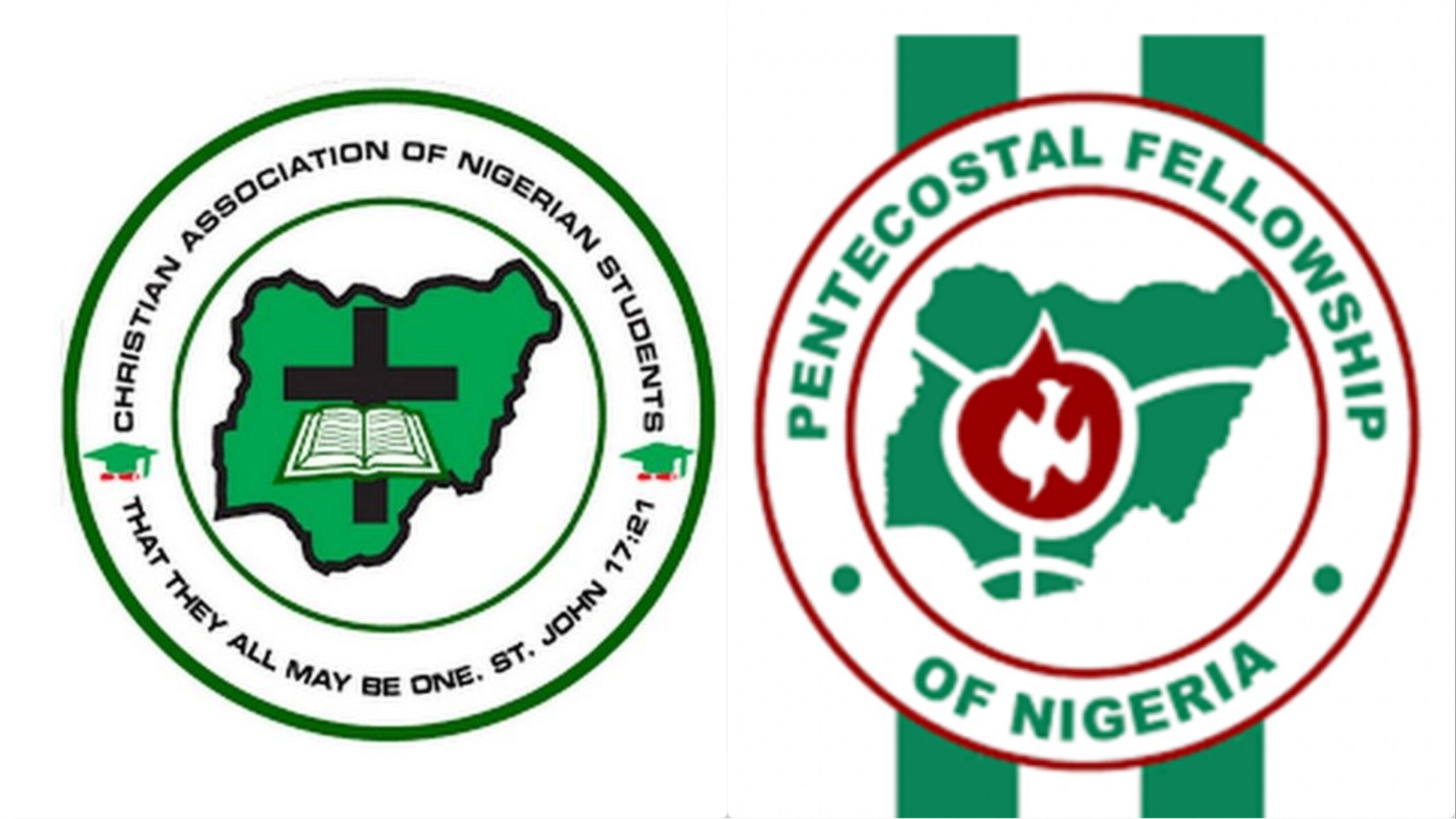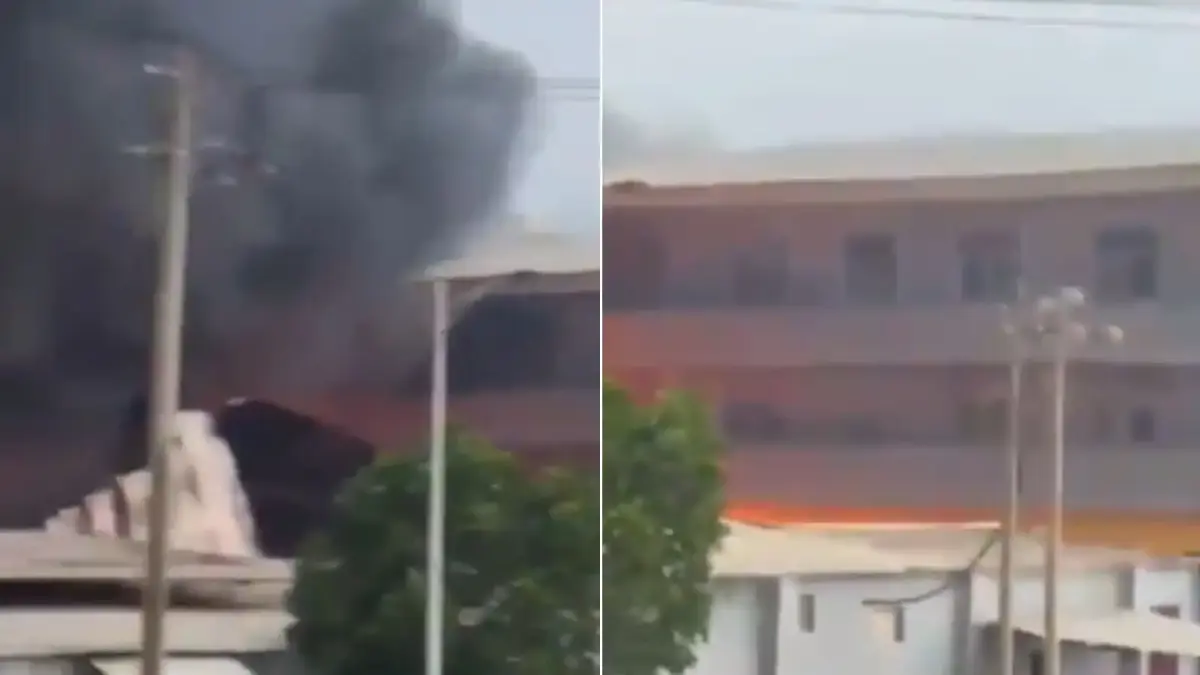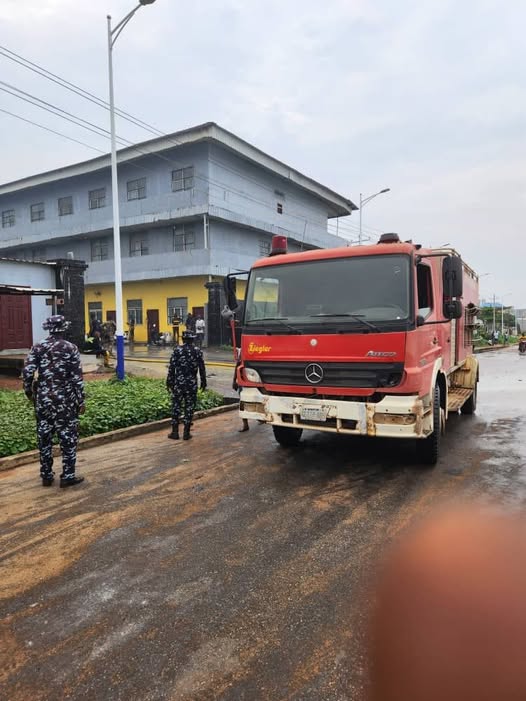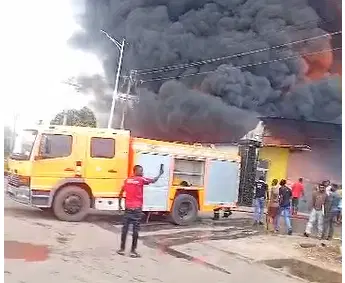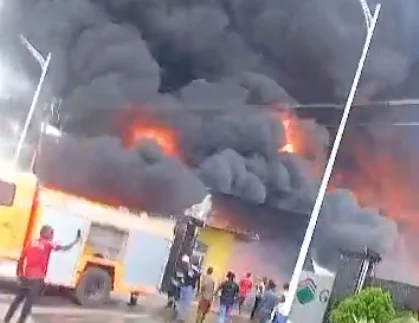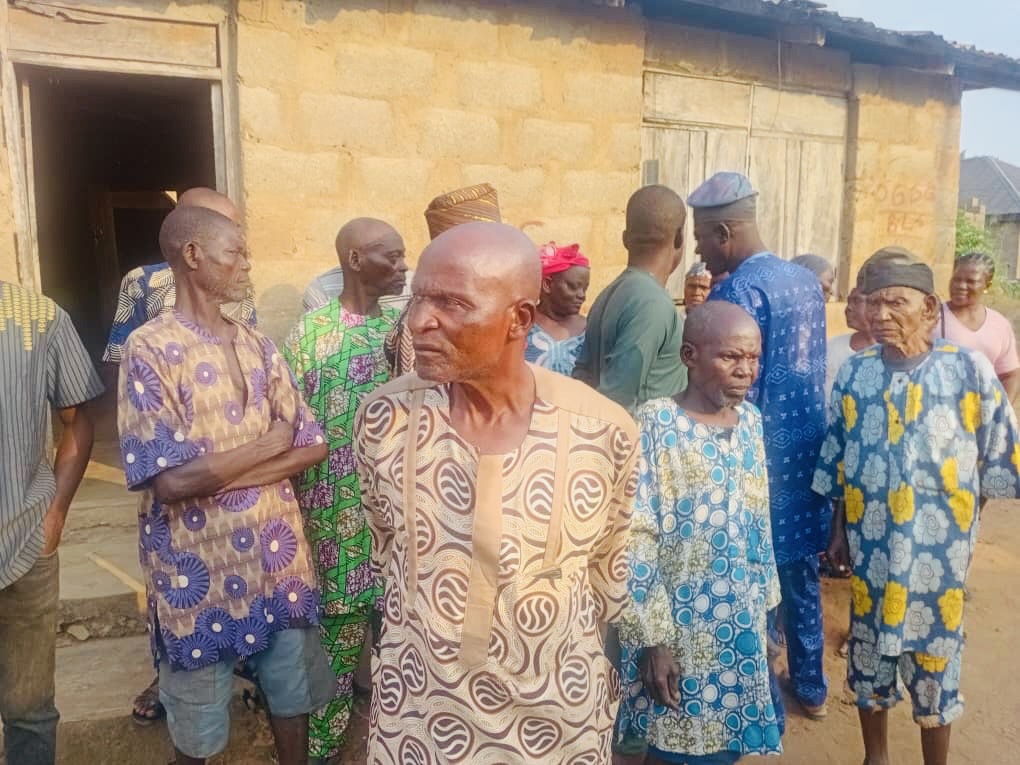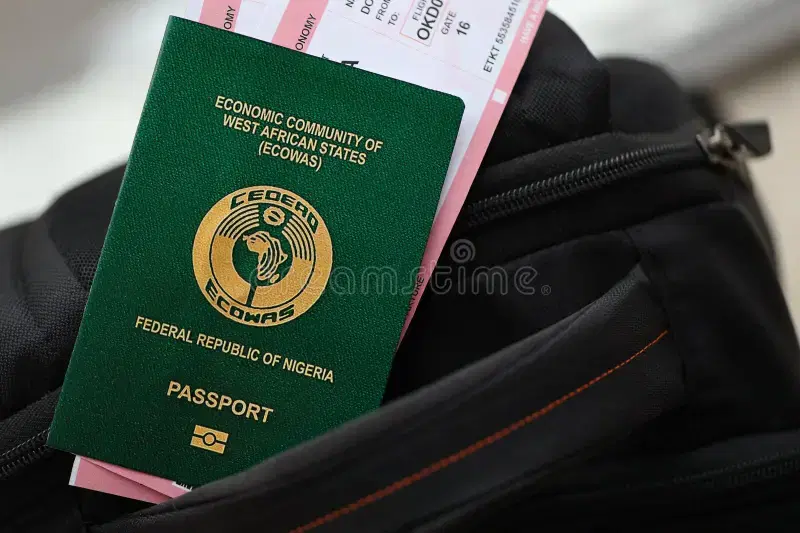Supreme Council for Islamic Affairs blames insecurity on poverty, climate change, crime | Seek foreign help to stop Christian killings, Anglican Primate tells Tinubu
Christian bodies, including the Pentecostal Fellowship of Nigeria (PFN), Northern States Christian Association of Nigeria (CAN), its Kaduna State Chapter and others have kicked against the Nigerian Supreme Council for Islamic Affairs’ (NSCIA) dismissal of the reports of a Christian genocide in Nigeria.
The NSCIA had described the reports of Christian genocide in Nigeria as false, divisive, and part of a broader geopolitical conspiracy to destabilise the country.
However, the president of the Pentecostal Fellowship of Nigeria (PFN), Bishop Francis Wale Oke, has insisted that it would be a ‘desecration’ to the memory of thousands of victims to describe the killings targeting Christian communities in some states in the North as anything other than genocide.
After a meeting of the Ulamah Council in Abuja on Sunday, the national secretary of the NSCIA, Prof Is-haq Oloyede, said both Muslims and Christians were victims of the same failed security system, poverty, and criminality, and that it was not a religious persecution.
“We turn to our genuine Christian brothers and sisters and tell them: you are not our enemies. You are our compatriots, colleagues, and neighbours.
“We are both Muslims and Christians — victims of a perennial, failed security architecture and a brutal criminal insurgency that targets us all.
“ We have never denied our collective pain. Do not allow foreign political gladiators or domestic separatists to exploit our real suffering to destroy our shared home.
“We, as Muslims, stand with you today against all forms of violence, criminality, and terror. We affirm that in Nigeria, there is no Christian genocide, and there is no Muslim genocide.
“The tragedy in Nigeria is not one of religion but of poverty, climate change, prolonged poor governance, and armed criminals who kill indiscriminately — while sections of the world seek to exploit the situation for geopolitical gain.”
He called on the international community and the press to reject the false, dangerous, and destabilising narrative of a Christian genocide.
“We also urge the Nigerian government to redouble its efforts to protect all citizens, regardless of faith; to defeat the bandits and terrorists; to expose all corrupt instigators of this divisive agenda; and to hold to account any foreign actors working against Nigeria’s unity,” he added.
According to Oloyede, the narrative of genocide was being pushed by foreign political interests seeking to fragment Nigeria along religious lines.
Oloyede warned that the attempt by some Western powers, particularly the United States, to brand Nigeria’s security crisis as genocide was a geopolitical ploy designed to fragment the nation.
He accused certain foreign actors of exploiting Nigeria’s insecurity for “geopolitical profits” while turning a blind eye to atrocities elsewhere, including Gaza.
“If the USA truly loves humanity, it should strengthen Nigeria’s capacity to fight banditry and insurgency, not undermine the country with false narratives,” he said.
The NSCIA insisted that there was no religious war in Nigeria, noting that the constitution guarantees freedom of religion through three co-existing legal systems — common law, sharia, and customary law.
He accused the United States and other Western actors of exploiting the country’s security challenges to advance their own agenda.
“Genuine assistance requires partnership, not unilateral actions which, even if unintentional, could fragment our nation. We will not allow Nigeria to be destabilised by a foreign agenda,” he declared.
The NSCIA maintained that the recent statements by some American political figures linking Nigeria to Christian persecution were “factually baseless and morally reckless.”
It noted that Amnesty International and other credible global bodies had found no evidence of a coordinated campaign to exterminate Christians in the country.
Oloyede said, “What Nigeria faces is a complex tragedy of poverty, climate change, and criminality. Armed groups kill indiscriminately—Muslims and Christians alike. These terrorists are not our representatives; they are our mortal enemies.”
The Council argued that linking the violence in northern Nigeria to religious motives ignored the deeper causes of insecurity, including desertification, economic deprivation, and organised crime in mining and arms trafficking.
The NSCIA also claimed the “genocide” narrative intensified after Nigeria reaffirmed support for the Palestinian cause at the United Nations General Assembly.
It said the misinformation was being driven by far-right and pro-Israeli lobbyists to distract global attention from the ongoing conflict in Gaza.
The NSCIA urged the federal government to intensify efforts in protecting all Nigerians regardless of faith and to “destroy the bandits, expose their sponsors, and confront the corruption feeding insecurity.”
The group also called on the international community to resist false narratives and support Nigeria with intelligence sharing, logistics, and human capacity development.
“We believe that if the United States is truly a lover of humanity and genuinely cares about this country, what is expected is support to strengthen the capacity of government to sincerely fight banditry and insecurity.”“
No Controversy About Targeted Killings In Nigeria – Bishop Oke
But the President of the Pentecostal Fellowship of Nigeria (PFN), Bishop Francis Wale Oke, has insisted that it would be a ‘desecration’ to the memory of thousands of victims to describe the killings targeting Christian communities in some states in the North as anything other than genocide.
During an interview with journalists at the Covenant Cathedral of Christ Life Church at Agodi, Ibadan, Oyo State capital, Bishop Oke said the scale and persistence of attacks on Christians in several parts of Northern Nigeria could “no longer be debated,” stressing that the situation demands urgent and sincere government action.
Worried by the unabated spate of killings of Christians for many years without an end in sight, the PFN President asked, “Where is Lea Sharibu? What happened to the Chibok girls? Chibok is a predominantly Christian community in Borno State.
“What is going on in Benue State is still on now? Since Donald Trump cried foul against Nigeria on the matter of genocide, many more people are being killed in Plateau State.”
Bishop Oke noted that United States President Donald Trump had previously designated Nigeria as a ‘Country of Particular Concern,’ citing what he described as ‘Christian genocide.’
While Nigerian authorities have repeatedly rejected that classification, Oke said Trump’s concerns reflect a reality that many Nigerians were witnessing.
“We are not accusing the Muslim community, get me clear. We have been living together for a long time, maintaining mutual respect and harmony. It is the violent sect of Islam that is called Boko Haram, ISWAP, and others that use the name of Islam to attack churches.
“Hundreds of churches had been burnt down, tens of thousands of Christians had been massacred. Hundreds of pastors had been butchered.
“It would be a desecration to the blood of these Nigerians to call it any other name. There is not a single instance of a Christian group attacking Muslims. It is always the other way round. “
Anglican Primate Tells FG To Seek Foreign Help To Stop Christian Killings
For his part, Primate of the Church of Nigeria (Anglican Communion), Most Rev’d Henry Ndukuba, has called on the federal government to seek foreign assistance if it is unable to end the violent killings and persecution of Christians in the country.
The Archbishop made this comment while speaking with journalists on the sidelines of the consecration of 15 new Bishops at the Cathedral of Church of the Advent, Abuja, on the issue of targeted killings of Christians in Nigeria.
Ndukuba confirmed the grim reality of targeted attacks, revealing that several pastors and their families remain in captivity after being abducted from their churches.
“The persecution of Christians and the violence that is going on in this land is not something that anybody can deny.
“As I am talking to you now, we have some of our pastors who are kidnapped with their families, taken from their church, and they have not been released.
“If our authorities, the government, cannot handle it, it is good for them to seek help. But at the due time, we will say what we should say,” he said.
Faith-based Killings In Nigeria A Reality- CAN
Contrary to insinuations that there are no faith-based killings in Nigeria, the Christian Association of Nigeria (CAN) has said that killings of Christians in Nigeria are a reality and should not be denied by any God fearing person.
Kaduna State CAN chairman Rev. Caleb Maaji said: “Killings in Nigeria are a reality and killings are never permitted by either Christians or Muslims.
It is very very unfortunate, no man makes life, no one has a right to take another person’s life no matter what. Whoever does that is not a religious person; they are criminals that are supposed to be arrested prosecuted and jailed after being tried.”
Corroborating his position, the chairman of CAN in the Northern States and the Federal Capital Territory, Rev. Dr John Joseph Hayab said, “My understanding of this argument is that even if they find the corpses of our children on ground, they will still deny, so we don’t need to react to them since that’s the reason why we have not been able to solve Nigerian problems – because people choose debating about sensitive or serious issues rather than finding solutions.
“We cannot continue to live in self denial. If you have a wound or you are sick and you refuse to accept and chose the part of denying that you are not sick … you will not get cured.’’
“The fact is that what we believe is that what is happening now is supposed to be an opportunity for all of us to find solutions and look at how we work together to stamp out these killings, expose those who are hiding under any religious name to kill fellow citizens.
“The denial is probably to satisfy some people who don’t want the problem solved, so if they choose the part of denial, I can tell you even if they see the corpse of a Christian, they will still deny it. They have done that before as well, so it’s not strange to us.
“We have condemned and spoken against all forms of killings in Nigeria, be it Christian or Muslim, but I have really never seen them courageously come out to criticise anybody who used their religious name to do evil, and that is why evil people are thinking that they have been supported.
‘I hope the Nigerian government will wake up from sleep and correct the wrongs. How can I deny that people are being killed? What will their family members think? he concluded.
US Has Credible Information About Killings In Nigeria – Isong
In reaction to claims of the Supreme Council for Islamic Affairs, former national publicity secretary and Current National Vice president South South zone for Pentecostal Fellowship of Nigeria, PFN, Archbishop Emma Gospel Isong, said that the US has credible intelligence about the killings, stressing that the US move was justified.
According to him, Nigeria should even be grateful for the designation.
He said that the international community had been watching Nigeria for many years, stressing that the US had enough surveillance technology and intelligence to say what it said.
“To say that Christians had been targeted within communities is a fact; some communities have been wiped out, and most of them have been put in internally displaced persons (IDP) camps.
“You cannot disagree except somebody who has been sleeping for the last 20 years.”
Isong, the General Overseer of Christian Central Chapel International (CCCI), Calabar, stressed that this is the time for Nigeria to restructure its security and intelligence system, rather than live in denial.
He said that admission would possibly lead to the US assisting Nigeria in enhancing its defensive capabilities. Isong dismissed the fear that the US would hurt Nigerians.
“I work under the Anti-Corruption and Inter-religious department of the United States Embassy. I’m a member of the board,” Isong maintained.
“They said that Nigerians whose hands are clean should have nothing to fear.
Those perpetrating killings in the guise of ethno-religious crises are the ones who deserve sanction from the United States Government.”
FOLLOW US ON:
FACEBOOK
TWITTER
PINTEREST
TIKTOK
YOUTUBE
LINKEDIN
TUMBLR
INSTAGRAM

 News8 hours ago
News8 hours ago
 Politics8 hours ago
Politics8 hours ago
 News8 hours ago
News8 hours ago
 News7 hours ago
News7 hours ago
 News9 hours ago
News9 hours ago
 Politics7 hours ago
Politics7 hours ago
 Crime8 hours ago
Crime8 hours ago
 News7 hours ago
News7 hours ago
